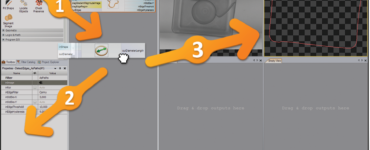Being a landlord is one of the most sought-after careers nationwide. That is why experts estimate that up to 11 million individuals invest in homes in the United States.
It is no wonder that owning real estate is so popular. There are endless benefits, from investment income to enticing tax benefits.
However, there is one headache within the industry, property accounting.
Fortunately, there are ways to overcome this issue. You can uncover how to do so below in our guide to the top four real estate accounting tips.
Distinguish Between Personal and Rental Finances
A principle of rental property bookkeeping is to separate personal and rental costs. Yet many newcomers to the industry need to pay more attention to this simple yet vital piece of advice.
Getting a separate bank account for your rental helps you accurately track income. On top of that, you can examine expenses related to your properties.
This simplifies record-keeping and ensures a clear picture of your home’s financial performance. It also helps during tax time. You can identify deductible expenses and report rental income to the last penny.
Maintain Accurate Records
Keep records of all financial transactions connected to your rental. Your logs should include rent received, expenses incurred, repairs, and maintenance.
Use accounting software or spreadsheets to organize your records systematically. These records will serve as a financial trail. In return, this allows you to monitor the profit of each property and give documents for taxes.
You should keep digital copies of receipts to help cut the risk of losing financial info.
Track Your Rental Income and Expenses
Rental income includes money collected from tenants, late fees, and additional rental-related revenue. It is crucial to record and document all sources of income accurately.
On the expense side, track all costs associated with your rental property. Some of the most significant factors to keep your eye on are:
- Property taxes
- Mortgage payments
- Insurance premiums
- Repairs and maintenance
- Utilities
- Property management fees
Categorize your costs by separating capital expenditures from regular operating expenses. Each one may have different tax implications.
Reviewing your income and expense statements lets you make informed financial decisions. More so, you can identify areas for cost-saving or revenue enhancement.
Understand Taxes and Seek Professional Advice
Rental income and expenses have specific tax implications that landlords need to understand. Organization and preparation are key here. As Benjamin Franklin once said, “By failing to prepare, you are preparing to fail.”
Familiarize yourself with applicable tax laws, deductions, and reporting requirements. Deductible expenses may include mortgage interest, property taxes, and insurance premiums. The prices could even include advertising and marketing costs, repairs, and professional fees.
Properly documenting expenses is crucial for maximizing deductions and minimizing tax liabilities. Consider consulting with tax professionals or balanced asset solutions to ensure you follow tax laws. Their expertise can help you optimize your tax strategy and save money in the long run.
Make the Most of Our Property Accounting Tips Today
It is no secret that owning a rental is a worthwhile and bright future. But property accounting and finances still cover the profession in a dark light.
After reading our guide, you know that you can avoid these challenges. All you need to do is follow our tips and work hard for a lifetime of rewards.
This is one way to maximize your property rental. If you want to discover more ways to do so, keep reading our in-depth blog for free!










